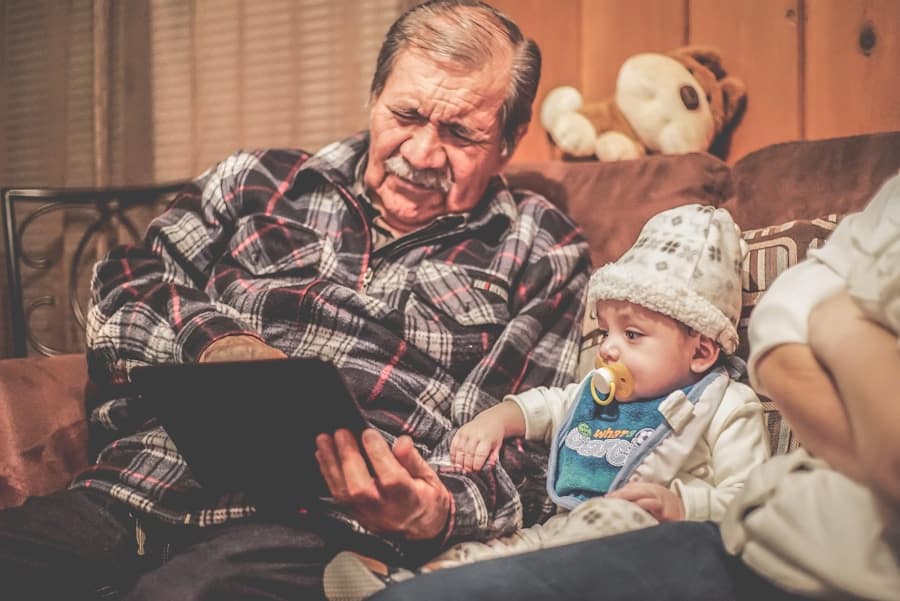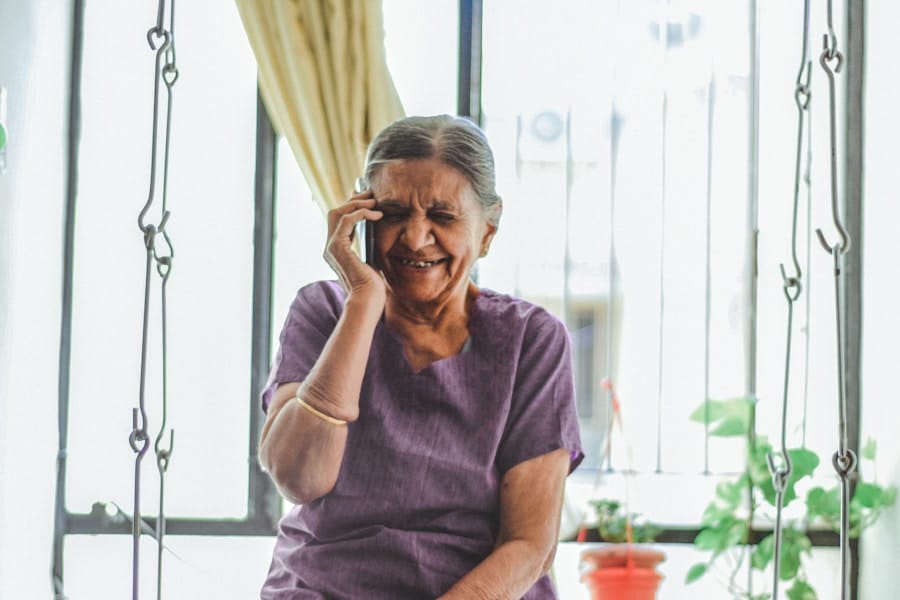The advent of artificial intelligence (AI) has revolutionized numerous sectors, and healthcare is no exception. In recent years, AI-powered home health monitoring systems have emerged as a transformative solution for managing the health of elderly individuals. These systems leverage advanced algorithms and machine learning techniques to collect, analyze, and interpret health data in real-time, enabling caregivers and healthcare professionals to monitor patients remotely.
The rise of these technologies can be attributed to several factors, including an aging population, the increasing prevalence of chronic diseases, and the growing demand for personalized healthcare solutions. As the global population ages, the need for effective healthcare solutions tailored to the elderly has become more pressing. According to the World Health Organization, the number of people aged 60 years and older is expected to reach 2 billion by 2050.
This demographic shift necessitates innovative approaches to healthcare delivery, particularly for those who prefer to age in place. AI-powered home health monitoring systems provide a viable solution by allowing seniors to receive care in the comfort of their homes while ensuring that their health is continuously monitored. These systems can track vital signs, medication adherence, and daily activities, providing valuable insights that can help prevent health complications.
Key Takeaways
- AI-powered home health monitoring systems are on the rise, revolutionizing elderly care and health monitoring.
- These systems offer benefits such as early detection of health issues and improved patient safety and health outcomes.
- AI plays a crucial role in remote patient monitoring, providing timely interventions and personalized care for the elderly.
- However, challenges and limitations exist, including ethical considerations and privacy concerns in AI-powered home health monitoring.
- When choosing the right AI-powered home health monitoring system for elderly loved ones, it’s important to consider factors such as accuracy, ease of use, and data security.
Benefits of AI-Powered Home Health Monitoring Systems for Elderly Care
Continuous Monitoring and Independence
One of the most significant advantages is the ability to provide continuous monitoring without the need for constant in-person visits from healthcare providers. This not only reduces the burden on healthcare systems but also allows seniors to maintain their independence and dignity.
Real-time Health Insights and Communication
For instance, wearable devices equipped with AI can track heart rate, blood pressure, and other vital signs, alerting caregivers or medical professionals if any abnormalities are detected. Moreover, these systems can facilitate better communication between patients and healthcare providers. Many AI-powered platforms come with user-friendly interfaces that allow seniors to easily report symptoms or concerns.
Personalized Care and Improved Health Outcomes
This real-time communication can lead to quicker interventions when necessary, ultimately improving health outcomes. Additionally, AI algorithms can analyze data trends over time, enabling healthcare providers to make informed decisions about treatment plans and adjustments based on individual patient needs. This personalized approach is particularly beneficial for managing chronic conditions such as diabetes or hypertension.
How AI-Powered Systems Improve Patient Safety and Health Outcomes

The integration of AI into home health monitoring systems significantly enhances patient safety and health outcomes. By continuously collecting and analyzing data, these systems can identify potential health risks before they escalate into serious issues. For example, an AI system might detect irregularities in a patient’s heart rhythm through wearable technology, prompting immediate medical attention that could prevent a heart attack or stroke.
This proactive approach to healthcare is a game-changer, especially for elderly patients who may not always recognize or report symptoms. Furthermore, AI-powered systems can help ensure medication adherence, which is crucial for managing chronic illnesses. Many elderly patients struggle with complex medication regimens, leading to missed doses or incorrect usage.
AI systems can send reminders to patients about when to take their medications and even alert caregivers if doses are missed. This not only improves adherence but also reduces the likelihood of hospitalizations due to medication errors. By streamlining medication management and enhancing patient safety, AI-powered home health monitoring systems contribute significantly to better overall health outcomes for elderly individuals.
The Role of AI in Remote Patient Monitoring and Early Detection of Health Issues
Remote patient monitoring (RPM) has gained traction as a vital component of modern healthcare, particularly for elderly patients who may have mobility challenges or prefer to remain at home. AI plays a crucial role in RPM by enabling continuous data collection from various sources such as wearables, smart home devices, and mobile applications. These technologies work together to create a comprehensive picture of a patient’s health status, allowing for timely interventions when necessary.
Early detection of health issues is one of the most significant advantages of AI in remote patient monitoring. For instance, machine learning algorithms can analyze patterns in a patient’s vital signs and lifestyle data to identify deviations from their baseline health metrics. If a senior’s activity level suddenly decreases or their blood pressure spikes, the system can alert caregivers or healthcare providers immediately.
This capability not only enhances patient safety but also empowers healthcare professionals to intervene before minor issues develop into major health crises.
Challenges and Limitations of AI-Powered Home Health Monitoring Systems
Despite the numerous benefits associated with AI-powered home health monitoring systems, several challenges and limitations must be addressed to maximize their effectiveness. One significant concern is the digital divide that exists among the elderly population. Many seniors may lack the technological literacy required to operate these systems effectively or may not have access to reliable internet connections.
This disparity can lead to unequal access to care and limit the potential benefits of AI technologies for certain segments of the elderly population. Additionally, there are concerns regarding the accuracy and reliability of AI algorithms used in these systems. While machine learning models can analyze vast amounts of data and identify patterns, they are not infallible.
Ensuring that these systems are rigorously tested and validated is essential for building trust among users and healthcare providers alike.
The Future of AI in Elderly Care and Home Health Monitoring

The future of AI in elderly care and home health monitoring appears promising as technology continues to evolve at a rapid pace. Innovations such as advanced machine learning algorithms, natural language processing, and improved sensor technologies are expected to enhance the capabilities of home health monitoring systems significantly. For instance, future systems may incorporate voice-activated assistants that can facilitate communication between seniors and their caregivers or healthcare providers more seamlessly.
Moreover, as data privacy regulations evolve and improve, there will likely be greater emphasis on developing secure platforms that protect sensitive patient information while still allowing for effective monitoring and communication. The integration of AI with telehealth services is also anticipated to grow, enabling more comprehensive care models that combine remote monitoring with virtual consultations. This holistic approach could lead to more personalized care plans tailored specifically to the needs of elderly patients.
Ethical Considerations and Privacy Concerns in AI-Powered Home Health Monitoring
As with any technology that handles sensitive personal information, ethical considerations and privacy concerns are paramount in the realm of AI-powered home health monitoring systems. The collection and analysis of health data raise questions about consent, data ownership, and how this information is used by third parties.
Additionally, there is a risk that biases inherent in AI algorithms could lead to disparities in care delivery. If training data used to develop these algorithms do not adequately represent diverse populations, certain groups may receive suboptimal care or be overlooked entirely. Addressing these ethical concerns requires ongoing dialogue among stakeholders—including technology developers, healthcare providers, policymakers, and patients—to establish guidelines that prioritize patient rights while harnessing the benefits of AI.
Tips for Choosing the Right AI-Powered Home Health Monitoring System for Elderly Loved Ones
Selecting an appropriate AI-powered home health monitoring system for elderly loved ones involves careful consideration of various factors to ensure it meets their specific needs. First and foremost, assess the individual’s health conditions and requirements; different systems may cater to specific medical issues such as heart disease or diabetes management. Understanding these needs will help narrow down options that provide relevant features.
User-friendliness is another critical aspect when choosing a system. Many elderly individuals may not be tech-savvy; therefore, opting for a platform with an intuitive interface that simplifies navigation is essential. Look for systems that offer clear instructions and support resources to assist users in adapting to new technology.
Additionally, consider the level of integration with other healthcare services. A system that allows seamless communication with healthcare providers can enhance care coordination and ensure timely interventions when necessary. Finally, evaluate privacy policies and data security measures implemented by the provider; ensuring that sensitive health information is protected should be a top priority when selecting an AI-powered home health monitoring system.
In conclusion, as technology continues to advance at an unprecedented pace, AI-powered home health monitoring systems stand at the forefront of transforming elderly care. By addressing both the benefits and challenges associated with these innovations while prioritizing ethical considerations and user needs, we can pave the way for a future where seniors receive personalized care that enhances their quality of life while maintaining their independence at home.
A related article to “How AI-Powered Home Health Monitoring Systems Are Supporting Elderly Care” is “Can I Install Windows 11 Without TPM?” which discusses the technical requirements for installing the latest Windows operating system. To learn more about this topic, you can visit this link.
FAQs
What are AI-powered home health monitoring systems?
AI-powered home health monitoring systems are technological solutions that use artificial intelligence to monitor and track the health and well-being of individuals in their own homes. These systems can collect and analyze data from various sources such as wearable devices, smart home sensors, and medical records to provide insights into a person’s health status.
How do AI-powered home health monitoring systems support elderly care?
AI-powered home health monitoring systems support elderly care by providing real-time health monitoring, early detection of health issues, and personalized care plans. These systems can help elderly individuals to manage chronic conditions, track medication adherence, and receive timely interventions in case of emergencies.
What are the benefits of AI-powered home health monitoring systems for elderly individuals?
The benefits of AI-powered home health monitoring systems for elderly individuals include improved quality of life, increased independence, reduced hospitalizations, and better management of chronic conditions. These systems also provide peace of mind for family members and caregivers by offering continuous monitoring and alerts for any concerning changes in health status.
How do AI-powered home health monitoring systems ensure privacy and security?
AI-powered home health monitoring systems ensure privacy and security by using encryption and secure data storage methods to protect personal health information. These systems also adhere to strict privacy regulations and allow individuals to have control over who can access their health data.
Are AI-powered home health monitoring systems easy to use for elderly individuals?
Many AI-powered home health monitoring systems are designed with user-friendly interfaces and simple setup processes to make them easy to use for elderly individuals. Additionally, some systems offer features such as voice commands and remote assistance to further enhance usability for older adults.

